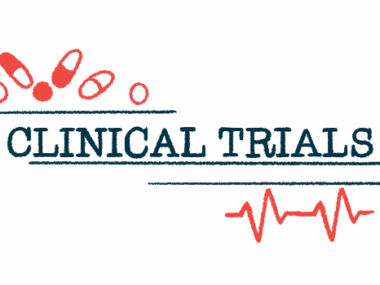Phase 3 trial of INOpulse finishes dosing; top-line data expected soon
Trial testing how using INOpulse device affects patients' physical activity
Written by |

Dosing is complete in the Phase 3 REBUILD clinical trial testing INOpulse (inhaled nitric oxide) in people with pulmonary fibrosis at risk of developing pulmonary hypertension.
In the blinded part of the study, which is now complete, participants were randomly assigned to receive nitric oxide or a placebo administered with the INOpulse device through a nasal cannula.
Participants who complete the initial four-month treatment period will have the option to move on to an open-label portion of the study, in which all will receive nitric oxide with the INOpulse device.
Top-line results from the blinded part of the study are expected in the coming months, according to Bellerophon Therapeutics, INOpulse’s developer.
“The successful and timely completion of the blinded treatment phase of our pivotal Phase 3 REBUILD trial represents a key milestone in our INOpulse development program and we look forward to the availability of top-line results from this important study in the middle of this year,” Peter Fernandes, Bellerophon’s CEO, said in a company press release.
Portable INOpulse device delivers nitric oxide directly to lungs
In people with pulmonary fibrosis, the scar tissue that builds up in the lungs can restrict blood flow, causing blood pressure to rise and putting patients at risk of developing pulmonary hypertension.
INOpulse is a portable device that delivers nitric oxide, a potent vasodilator naturally found in the body, directly to the lungs by inhalation through a nasal cannula. Vasodilators are compounds that widen and relax blood vessels, lowering blood pressure and allowing blood to flow more easily.
The main goal of REBUILD (NCT03267108) is to assess whether INOpulse is superior to a placebo at improving patients’ moderate to vigorous physical activity (MVPA), a measure of how active a patient is in their daily life, as measured via a sensor worn on the wrist.
The trial, which began enrolling in late 2020, was cleared to reduce the number of its participants. A total of 145 people were enrolled in the placebo-controlled part of the study, a number that allows drawing conclusions about the therapy’s efficacy on MVPA, according to Bellerophon.
The Phase 3 study builds on data from a previous Phase 2 trial that tested the same dose of INOpulse — 45 mcg/kg — versus a placebo for four months.
Top-line results showed that INOpulse led to a significant improvement — by 20% — in MVPA compared with a placebo. The impact of lung disease on the daily lives of patients, including their shortness of breath, was also eased.
If approved, INOpulse would become the first therapy approved to treat a broad range of pulmonary fibrosis patients, including those at low, moderate, and high risk of developing pulmonary hypertension.




